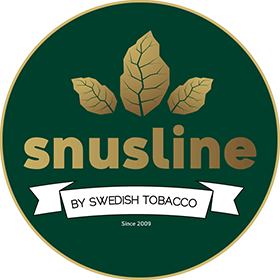No products in the cart.
Snus and Oral Microbiota Diversity
What is Snus? It’s a type of smokeless tobacco product. It’s traditionally used in Nordic countries. Recently, it has gained global popularity. This is due to its perceived harm reduction potential compared to smoking. The use of snus is becoming more prevalent. Hence, it’s vital to understand its potential effects on human health. One less-explored area is its impact on oral microbiota. Oral microbiota refers to the millions of microorganisms living in the human mouth. We need to understand how snus affects the diversity of these microorganisms. This article delves into the potential impact of snus on this complex ecosystem.
Oral Microbiota: An Overview
Our oral cavity is home to a complex, dynamic ecosystem of bacteria, fungi, viruses, and other microbes. Together, these microorganisms form our oral microbiota. This community plays a crucial role in maintaining oral health. It helps protect against harmful pathogens, aids in the digestion of food, and contributes to the development of our immune system.
Oral Microbiota and Oral Health
An imbalance in the oral microbiota is also known as oral dysbiosis. This can contribute to various oral health problems. These problems include dental cavities, periodontal disease, and oral cancer. Lifestyle factors can influence the composition and diversity of oral microbiota. Such factors include diet, alcohol consumption, smoking, and oral hygiene practices.
Impact of Tobacco on Oral Microbiota
Research has shown that tobacco use, particularly smoking, can significantly alter the oral microbiota, leading to a decrease in its diversity – a factor often associated with disease. Smokers tend to have a higher proportion of pathogenic bacteria and a lower proportion of beneficial bacteria. This imbalance is linked to an increased risk of oral diseases, including periodontitis and oral cancer.
Snus and Oral Microbiota
Despite the extensive research on smoking’s impact on oral microbiota, there’s relatively little information on the effects of smokeless tobacco products like snus. Preliminary studies suggest that, like smoking, snus usage may influence oral microbiota’s composition and diversity.
A 2016 study conducted in Sweden found significant differences in the oral microbiota of snus users compared to non-users. The research identified several bacterial species that were either more or less abundant in snus users. Notably, the study found an increased abundance of bacteria from the genus Rothia and a decreased abundance of bacteria from the genus Actinobacillus in snus users. Both genera include species implicated in oral diseases.
Snus Usage and Oral Health
Several studies have explored the relationship between snus usage and oral health. Researchers have associated the use of snus with oral conditions such as gum recession and tooth discoloration, but they haven’t conclusively linked snus to severe oral health problems like periodontal disease and oral cancer.
Although snus lacks the combustion products found in cigarettes, it still contains nicotine and other potentially harmful chemicals that can affect oral health. For instance, studies show that nicotine reduces blood flow in the gums, potentially contributing to gum disease.
Future Directions in Research
As snus use continues to rise, more extensive research is needed to further understand its impact on oral microbiota diversity and oral health. Future studies should seek to:
- Characterize the specific changes in oral microbiota composition associated with snus use.
- Explore the potential causal relationships between snus usage, changes in oral microbiota, and oral health outcomes.
- Investigate the underlying mechanisms through which snus may influence oral microbiota.
Conclusion
The influence of snus on oral microbiota diversity is a burgeoning field of study, promising to shed light on the broader impacts of this smokeless tobacco product. Preliminary research suggests that snus may affect oral microbiota, but researchers have yet to definitively understand the specific nature and health implications of these changes. As with any tobacco product, the safest course of action is not to use it. However, for those who do choose to use snus, maintaining good oral hygiene and regular dental check-ups remain crucial to mitigate potential adverse effects on oral health.

 Sign in
Sign in



